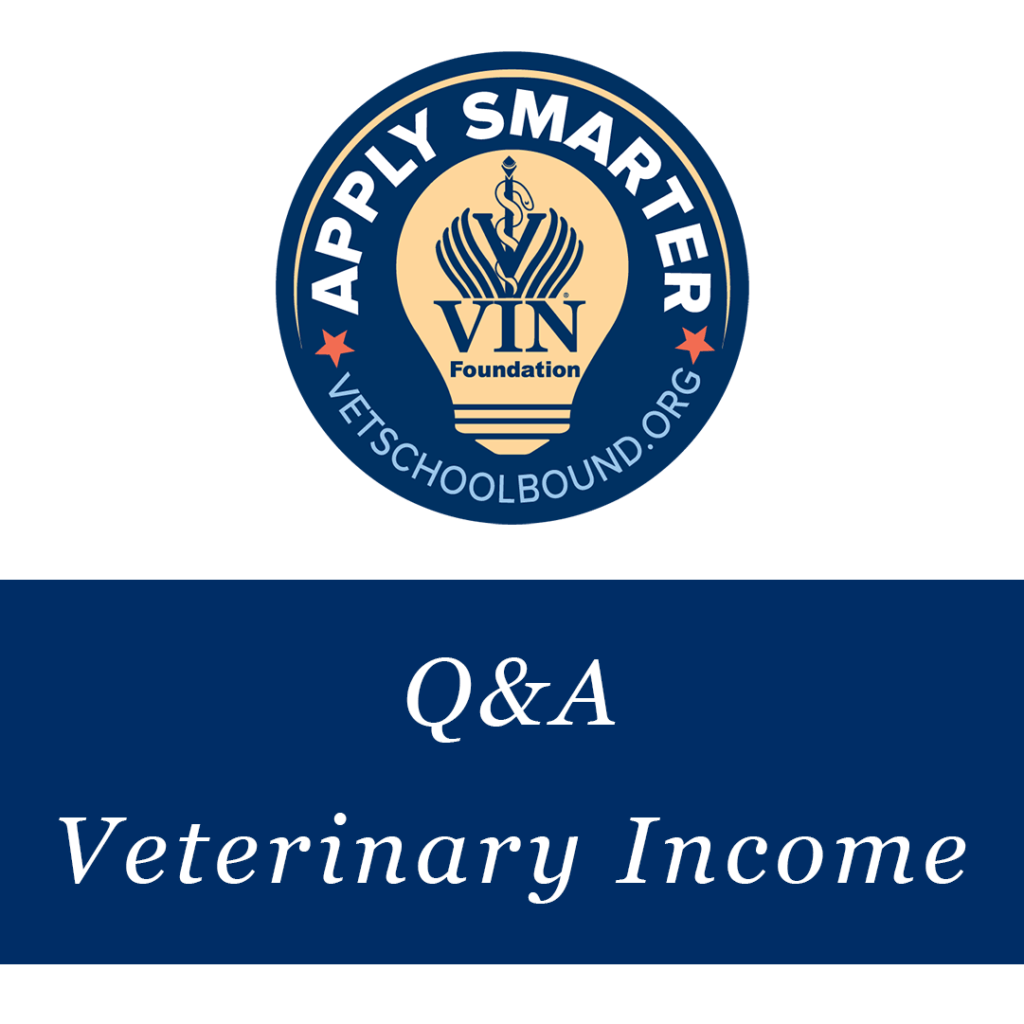“I’ve heard that it is very tough to have a job while attending vet school? Is it because the program is intense?”
“How does the type of animals you treat (small/large/exotic) factor into how much money you’ll make a year in veterinary medicine?”
“What is the difference between starting salary and earning potential 5, 10, 20, or 30 years into your career?”
For data beyond the first several years, review the 2019 AVMA Report on ECONOMIC STATE OF THE VETERINARY PROFESSION. This report contains some graphs for various veterinary practice types and years of experience. Since you can’t access the report online until you’re a student AVMA member (or you know a veterinarian who is an AVMA member), you can often access these reports through a veterinary school library.
“If salary doesn’t really make a difference on which school you come from, what is the benefit of attending a higher ranked school?”
“Is residency and interning required? If not, what are the benefits of doing so?“
Internships and/or residencies are not required in veterinary medicine. In fact, most veterinary school graduates do not do internships and residencies. You can see statistics on most veterinary internships and residencies through the Veterinary Internship and Residency Matching Program (VIRMP) as well as the AAVMC summary of findings for internships and residencies. There are a number of reasons to do an internship after graduation, but for most an internship is a stepping stone to a specialty residency.
“You mentioned no “Harvard effect” for starting salaries; is there one for getting internships/residencies?”
“Do the average salaries discussed during the Apply Smarter webinar include internships?”
For example, the average income for 2019 veterinary graduates excluding those who did internships or residencies was about $85,000/year. The average income for the 2019 veterinary graduates who opted for internships/residencies was $35,000/year.
“How easy is it to get a job as a new grad to have room to negotiate salary?”
“The Carribean schools have the highest debt-to-income ratio, is it true it is even harder to find a job after graduating from a school such as Ross?”
“What is a reasonable percentage of income to pay towards student debt?”

Dr. Tony Bartels graduated in 2012 from the Colorado State University combined MBA/DVM program and is an employee of the Veterinary Information Network (VIN) and a VIN Foundation Board member. He and his wife have more than $400,000 in veterinary-school debt that they manage using federal income-driven repayment plans. By necessity (and now obsession), his professional activities include researching and speaking on veterinary-student debt, providing guidance to colleagues on loan-repayment strategies and contributing to VIN Foundation initiatives.

